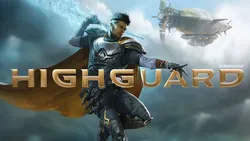What We Know so far about the eSports Olympics

The eSports industry has made significant strides in development and growth during
the past few years. Huge increases in investment and viewership, as well as the
growth of professional leagues, have all helped to generate mainstream recognition
for competitive video gaming.
Not only is eSports becoming increasingly popular with the global gaming
community, pushing viewership figures up to 532 million in 2022, but the industry has
been on the receiving end of considerable investment from brands and organisations
outside the gaming world. Furthermore, with eSports tournaments like The
International and The League of Legends World Championship now as popular as
traditional sports events, fans can even back their favourite teams and players
through eSports betting, a new market that has developed alongside more
conventional online casino betting.
One of the biggest steps that the industry has been able to take towards legitimacy
began two years ago when competitive video gaming debuted as a supporting event
at the postponed Tokyo 2020 Olympics. The following summer, three video games
were included in the Commonwealth Esports Championships at the 2022
Commonwealth Games. Now, eSports are poised to be fully recognised as an
Olympic event, but not necessarily in the form that gamers first expect.
The Olympic Esports Series 2023
In early March, the International Olympic Committee (IOC) confirmed another
milestone achievement in the growth of eSports by announcing its second
competitive gaming event. The Olympic Esports Series 2023 invites professional and
amateur gamers to compete in a series of qualifying rounds, which culminate in a
week-long event at the Singapore Olympics in June.
Qualifiers kicked off on March 1st and will run to May 15th, 2023. The grand final will
be the centrepiece of the Olympic Esports Week 2023, which will be held at the
Suntec Centre, Singapore, from the 22nd to the 25th of June. Nine games have
been announced so far, which should represent a landmark moment that both the
eSports and gaming worlds could celebrate.
However, the choice of titles has left most eSports pros puzzled, with the wider
community wondering why IOC’s idea of pro gaming differs so greatly from what it
truly is.
eSports According to the IOC
Instead of choosing from well-established eSports behemoths like League of
Legends, Counter-Strike, Valorant, or even Fortnite and Rocket League, it seems the
International Olympic Committee has purposefully gone out of its way to not
accurately represent the discipline. Even the greenest amateur gamer knows that
these titles represent the highest level of competitive gaming, pulling in viewers in
their millions and supporting leagues of pro players across the world.
eSports at the Olympics, however, is a cobbled-together collection of sports
simulators, arcade games, and even low-ranking mobile apps.
The list of approved games at the time of writing is as follows:
- Tic Tac Bow (World Archery Federation)
- Chess.com (International Chess Federation)
- Gran Turismo (Fédération Internationale de l’Automobile)
- Just Dance (World DanceSport Federation)
- Tennis Clash (International Tennis Federation).
- Virtual Regatta (World Sailing)
- Virtual Taekwondo (World Taekwondo)
- WBSC eBASEBALL: POWER PROS (World Baseball Softball Confederation)
- Zwift (Union Cycliste Internationale)
Is There a Method in the Madness?
A quick glance at the list above shows only one recognisable “proper” video game
has made the cut, but as fun as the racing simulator that Gran Turismo is, it’s hardly
setting the pro gaming world alight. Meanwhile, the inclusion of Ubisoft’s “rhythm
game” Just Dance is an insult to professional dancers who dedicate their lives to the
creation of art, never mind what it says about pro gamers. As for Tennis Clash, this
mobile game has been blasted for its “predatory loot box mechanics”, so the less
said about it, the better.
Elsewhere on the line-up, is it possible to see some method behind the madness,
especially if we consider the IOC’s vision of eSports is less about competitive
gaming and more about virtual sports simulations?
Virtual Regatta and Zwift, which represents cycling, are considerably popular digital
alternatives of their respective sports, while the WBSC has at least partnered with
gaming developer Konami (Silent Hill, Metal Gear Solid) by choosing eBASEBALL:
POWER PROS.
Chess is a reasonable choice of game to include as well, particularly when we
consider that the game predates video gaming by about 1350 years. Chess.com, the
company behind the free-to-play platform, has been investing significant resources (both time and financial) in trying to turn the discipline into a recognised eSport, so it
deserves its time in the spotlight.
Ultimately, while the global eSports community has no objection to virtual sports
being featured in the summer games, there’s a struggle to consolidate what eSports
means for the individuals and teams involved in the discipline with the vastly different
ideas of the IOC. Given that this year’s events mark only the second time that the
Olympic Games have featured a virtual component, a few teething problems are to
be expected. The IOC has even said that it will add extra titles to the line-up of
competitive games available in the coming weeks, although it’s unlikely that Valorant
and LoL fans will see their favourite games make the list.







